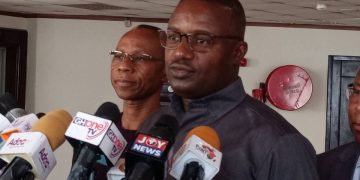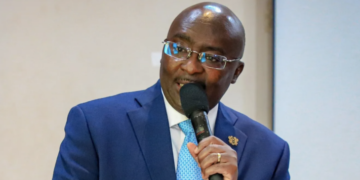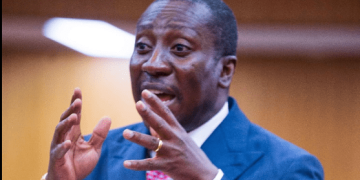Ghana is expected to conclude debt restructuring negotiations with its external creditors – bilateral and bondholders – by the middle of this year – June 2024.
This is according to research firm, Fitch Solutions.
Fitch Solutions, however, asserts that should the conclusion of the external debt restructuring negotiations last beyond June, investor confidence in the economy would weaken resulting in a renewed sell-off of the cedi which would lead to stronger imported price pressures (inflation),
“Our current projections are predicated on the assumption that the Ghanaian authorities and external creditors will be able to finalise debt restructuring negotiations by mid-2024. Should this process be longer than we currently expect (due to disputes for example), investor confidence towards Ghanaian assets would weaken. This would result in a renewed sell-off of the Ghanaian cedi, which would lead to stronger imported price pressures. In this scenario, domestic demand would remain weaker than our baseline forecast assumes,” it posited.
Ghana’s external debt has been a significant concern for the government, and the country’s efforts to secure the second tranche under the IMF bailout program have been complicated by negotiations with external creditors.
The country’s external debt stock stands at $29bn, of which commercial and bilateral creditors hold a significant portion of around $13bn, while multilateral institutions hold approximately $8bn, or 30% of the country’s external debt stock.
At the moment, Ghana is requesting a 20% – 40% haircut and a maximum 5% interest rate and maturity not exceeding 20 years on debts owed to China and other members of the OCC as well as its Eurobond holders.
A haircut, China is unwilling to take on its loans made to Ghana. Then there is the disagreement on the “cut-off dates” for the debts. The “cut-off date” – refers to the date after which new loans will not be restructured.
While Dec. 31, 2022 is close to when Ghana defaulted, March 24, 2020 was being considered as a cut-off date because that was when the G20 introduced its debt service suspension initiative (DSSI) to help the world’s poorest countries cope with the fallout of the COVID-19 crisis.
Ghana needs to reach a restructuring deal with its official creditors to secure the International Monetary Fund executive board’s approval for the next $600 million payout from the $3 billion rescue loan.
Meanwhile, the International Monetary Fund (IMF) has rescheduled its board meeting to consider Ghana’s second review under the Fund programme and the disbursement of the second tranche of $600 million to January 11, 2024.
The IMF Board was expected to meet on Ghana’s programme for the second review in November 2023.
However, the challenge in reaching an agreement with China on the debt restructuring compelled the Fund to reschedule the date on two occasions; in the first week of December 2023 and December 21, 2023.
Sources, however, say all hurdles have now been cleared and that could soon help the Official Creditor Committee to issue the needed MoU on Ghana’s debt restructuring.
Based on engagements with some persons on the Official Creditor Committee, there is optimism that some significant progress will be made before the Board meeting on January 11, 2024. This is due to some fresh commitments from China.



















































































